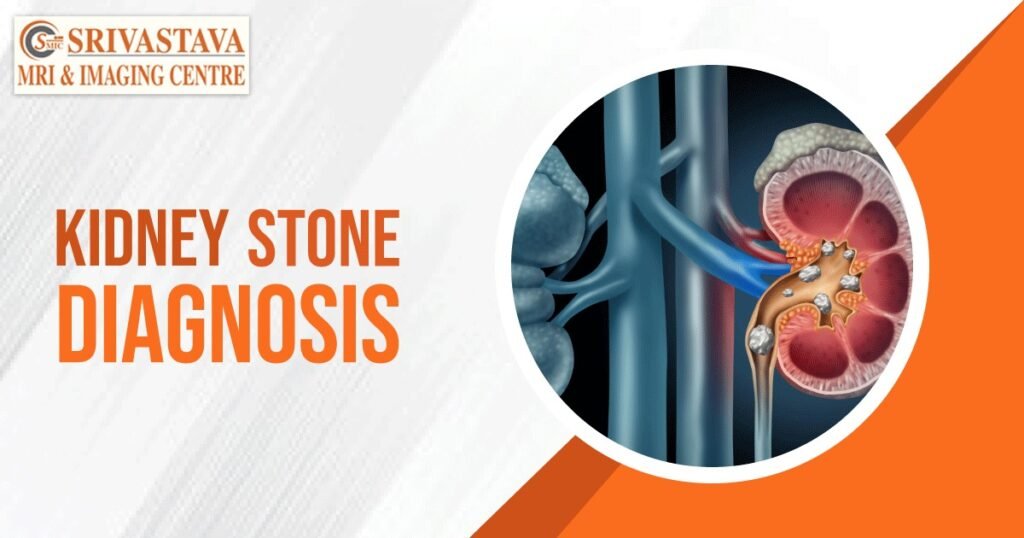Kidney stones are hard accumulations of crystallized minerals and salts. A kidney stone can also be called a nephrolith or a renal calculus. Around 11% of males and 6% of females in India are estimated to have kidney stones at some point during their life. kidney stones can also affect children. Stones are more common in people who do not drink enough fluids, have certain dietary habits, or use medications that can contribute to stone formation.
Kidney stones can be extremely small, like dust or sand, but can also become as large as a golf ball in extreme cases. Kidney stones vary in shape.
Symptoms of kidney stones may include:
- Sharp pain in your back side lower belly
- Nausea and vomiting
- Blood in your urine
- The feeling of small particles passing through when you urinate
- Pain when you urinate
- Feeling like you need to urinate but cannot
Diagnosis plan for Kidney Stones
The only way to know that you have a kidney stone is to see a doctor so they can make a diagnosis. There are several ways your doctor can detect kidney stones. Tests can also help determine why a stone formed, and how to reduce the risk of future kidney stones. Your doctor will explain the purpose of any specific test and how it will be used in the diagnosis or medical care of kidney stones. Tests include:
Imaging tests: Doctors have various ways to look inside your body to see the size and place of stones in the kidney. They might ask for:
- X-rays to find stones, but x-ray does not show little ones.
- CT scan called computed tomography is a more in-depth type of scan. In CT scan is a special kind of equipment that takes pictures from several angles. A computer then puts all the pictures together into more detailed images. A CT scan is often used in emergencies because it gives such clear and quick images to help doctors make a fast diagnosis.
- Ultrasound uses sound waves to create pictures of your insides. You may be told to drink more fluids before ultrasound perform. ( Best Ultrasound in Delhi )
Blood tests: These can help find out the cause of stone and whether you have too much of certain substances in your blood, such as uric acid or calcium.
Urine tests: These can detect stone-forming minerals in your urine or find out if you lack substances that help stop them from forming. You might collect a urine sample over a day or two.
- Treatment plan
Kidney stone treatment is the way that the doctor selects the best approach for each patient. This includes looking at tests that show the size and location of a kidney stone to determine if it will pass on its own or if steps are necessary to remove it or break it up by surgery. A follow-up test is important for people who have had a kidney stone. Testing can be used to check for new stones.

